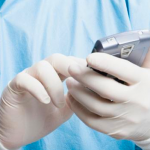Distracted Doctors
10 February 2013
Doctors and our constantly connected culture.
Doctors and medical professionals have always faced interruptions from beepers and phones, and multitasking is simply a fact of life for many medical jobs. What has changed, doctors say, especially younger ones, is that they face increasing pressure to interact with their devices.” Matt Richtel - New York Times (ref below)
 It’s this pressure; the urge to react and respond that interests me. Some of my clients, especially the Secondary Care Consultants, explain that it is a huge driving force in their working lives. It can result in people feeling really quite powerless and can compel them to behave in a very reactionary way.
I have no evidence to discuss whether this affects patient care, but I do know it affects working relationships and task management.
I believe that face-to-face human contact, powered by emotional and intellectual attention is the most important form of communication. (See link to Hallowell’s article below). The trouble is, with our over-reliance on electronic communication we miss key components of effective communication such as body language and empathy. My guess is that when seeing patients, most clinicians are still doing this, but it’s our other working relationships that can be dramatically affected.
And staying focused during tasks is also a challenge now. The ever-distracting ping of another email or text disrupts our attention and pulls us away from what we were doing, thus making the task exponentially longer. Having the discipline to stay focused and resist the urge to react is a crucial habit to re-establish.
Perhaps the answer is choice. What would you prioritise as important enough to interrupt what you are doing now or who you are currently paying attention to?
It’s this pressure; the urge to react and respond that interests me. Some of my clients, especially the Secondary Care Consultants, explain that it is a huge driving force in their working lives. It can result in people feeling really quite powerless and can compel them to behave in a very reactionary way.
I have no evidence to discuss whether this affects patient care, but I do know it affects working relationships and task management.
I believe that face-to-face human contact, powered by emotional and intellectual attention is the most important form of communication. (See link to Hallowell’s article below). The trouble is, with our over-reliance on electronic communication we miss key components of effective communication such as body language and empathy. My guess is that when seeing patients, most clinicians are still doing this, but it’s our other working relationships that can be dramatically affected.
And staying focused during tasks is also a challenge now. The ever-distracting ping of another email or text disrupts our attention and pulls us away from what we were doing, thus making the task exponentially longer. Having the discipline to stay focused and resist the urge to react is a crucial habit to re-establish.
Perhaps the answer is choice. What would you prioritise as important enough to interrupt what you are doing now or who you are currently paying attention to?
